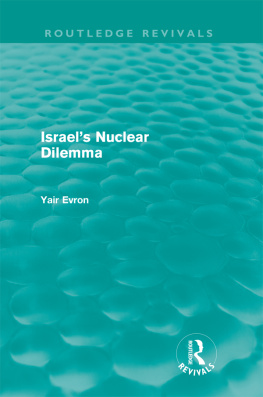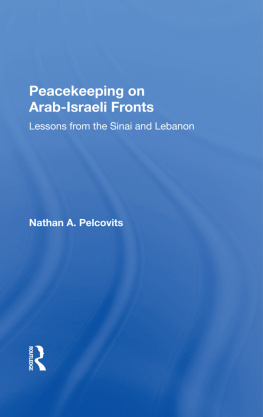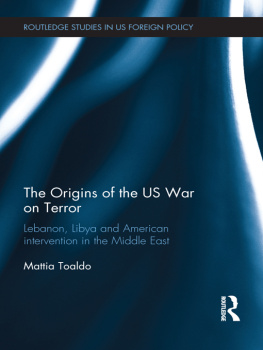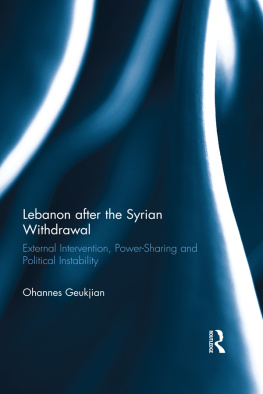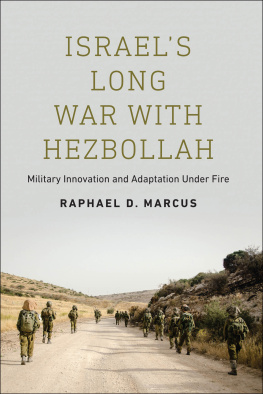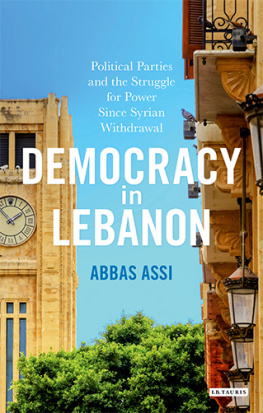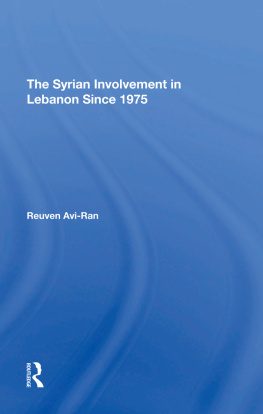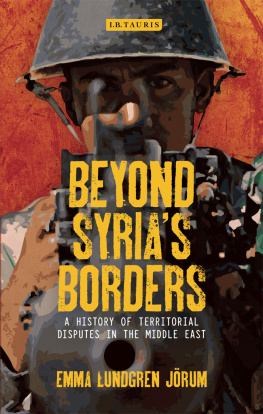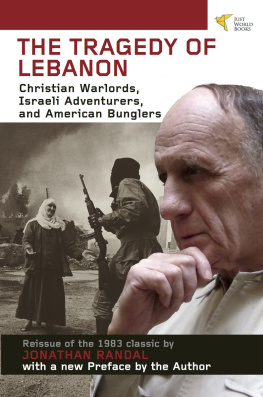Routledge Revivals
War and Intervention in Lebanon
Despite the bitter conflict that divided Jerusalem and Damascus, a fascinating process of indirect through the United States and tacit understandings emerged with regard to Lebanon in the 1970s. This derived largely from the Israeli deterrence posture which held in check Syrian military involvement in Lebanon. This book, first published in 1987, traces the development of the Israeli and Syrian involvement in Lebanon between 1975 and 1985, and of the deterrence dialogue which evolved between them. It also places this dialogue within the larger context of the overall Israeli-Syrian deterrence equation. War and Intervention in Lebanon is a fascinating and relevant work, of great value to those with an interest in International Relations and Middle Eastern history, politics and diplomacy.
First published in 1987
by Croom Helm Ltd
This edition first published in 2013 by Routledge
2 Park Square, Milton Park, Abingdon, Oxon, OX14 4RN
Simultaneously published in the USA and Canada
by Routledge
711 Third Avenue, New York, NY 10017
Routledge is an imprint of the Taylor & Francis Group, an informa business
1987 Yair Evron
All rights reserved. No part of this book may be reprinted or reproduced or utilised in any form or by any electronic, mechanical, or other means, now known or hereafter invented, including photocopying and recording, or in any information storage or retrieval system, without permission in writing from the publishers.
Publishers Note
The publisher has gone to great lengths to ensure the quality of this reprint but points out that some imperfections in the original copies may be apparent.
Disclaimer
The publisher has made every effort to trace copyright holders and welcomes correspondence from those they have been unable to contact.
A Library of Congress record exists under LC control number: 87002851
ISBN 13: 978-0-415-83091-1 (hbk)
ISBN 13: 978-0-203-49298-7 (ebk)
1987 Yair Evron
Croom Helm Ltd, Provident House, Burrell Row,
Beckenham, Kent BR3 1AT
Croom Helm Australia, 44-50 Waterloo Road,
North Ryde, 2113, New South Wales
British Library Cataloguing in Publication Data
Evron, Yair
War and intervention in Lebanon: The Israeli-Syrian
deterrence dialogue.
1. LebanonPolitics and government 1975
I. Title
956.92044 DS80.95
ISBN 0-7099-1451-2
Filmset in English Times by Pat and Anne Murphy,
10 Bracken Way, Highcliffe-on-Sea, Dorset
Printed and bound in Great Britain by Mackays of Chatham Ltd, Kent
To RUTI and ROI
Research for this book began indirectly in 1980, when in the pursuit of my ongoing interest in Israeli deterrence policy I began research on more specific instances of IsraeliArab deterrence dialogues. My focus was increasingly directed on the IsraeliSyrian strategic relationship and especially in regard to Lebanon. During my research I was fortunate in being able to interview Israeli decision makers and officials. All of them were interviewed while not in Government. These interviews were of considerable help in preparing . The following decision makers were kind enough to be interviewed: the late Yigal Allon, the late Yisrael Galili, Mordechai Gur, Shimon Peres, Yitzhak Rabin and Yitzhak Berman. Officials interviewed included Amos Eran, Reuven Merchav and Gideon Raphael. I have also discussed briefly some specific aspects of the subject of this book with Simcha Dinitz and Mordechai Gazit. Finally, I have conducted various interviews with other ex-Israeli officials who preferred not to be named. I am grateful to all of them.
While in the United States, I was fortunate to be able to conduct interviews with Joseph Sisco, following his retirement from government, and with several American officials who were involved over the years in the IsraeliSyrianLebanese triangle.
I would like to thank the following for commenting on parts or the whole of the manuscript or for giving me helpful advice during the research and writing of this book: Arnan Azariahu (Sini), Avraham Ben-Zvi, Dan Horowitz, Aharon Klieman, Moshe Maoz, Yehoshua Porath, Janice Stein and Saadia Touval. Their comments were invaluable.
A grant from the Jaffe Center of Strategic Studies, Tel-Aviv University, during the initial stage of the research is hereby gratefully acknowledged, as is a grant from the Leonard Davis Institute for International Relations, The Hebrew University of Jerusalem.
During different stages of the research and writing of this book I was fortunate in having the opportunity of discussing different aspects of the book with learned and helpful audiences. I have benefited from discussions conducted at departmental seminars of the Department of Political Science at Tel-Aviv University, the Dayan Center of Middle-Eastern Studies, also at Tel-Aviv University, the Department of International Relations at the Hebrew University of Jerusalem, the Seminar on Israeli Security at the Yad Tabenkin Research Institute, and from a special seminar at the International Institute for Strategic Studies in London.
I would also like to specially thank Warwick Sharp for his considerable contribution in carefully reviewing, editing and correcting the manuscript, and in also giving much helpful advice. Margaret Cornell was of great help in her meticulous scrutiny of the manuscript and in providing many important editorial comments. Finally, my research assistants, Nitzan Goldberg and Omri Yakir, were very helpful.
The disastrous conflict among the ethnic and religious communities in Lebanon has already attracted considerable international scholarly attention. The involvement of external powers, primarily Israel and Syria and to a lesser extent the superpowers, culminating in the 1982 War and the subsequent direct American intervention, has also stimulated some academic interest in the issue. Nevertheless, it seems that the multidimensional nature of the Lebanese conflict, and especially the role of the external powers, requires additional scientific investigation. This book focuses on the policies and strategies of Syria and Israel, the main external actors in the Lebanese quagmire. As their involvement began to expand in the mid-1970s, the two states observed each others moves with inevitable suspicion. However, despite the deep conflict that divides Jerusalem and Damascus, there gradually evolved a fascinating process of indirect and tacit understanding between them. This development derived mainly from the Israeli deterrence posture, which delineated the limits of Syrian military involvement in Lebanon. Gradually Syria also defined its own deterrence thresholds. This set of understandings held firm, under considerable stress, until 1982 when it broke down under the impact of the Israeli-initiated war.
The 1982 War was a significant international event, and requires extensive historical treatment in and of itself and as an input to the study of Middle Eastern politics. Furthermore, the aftermath of the war, the long and messy process of the Israeli withdrawal, and the re-emergence of Syria as the most important external actor in Lebanon, are also of importance to any follower of international and Middle Eastern politics. Since Israels withdrawal in 19845, the system of tacit understanding between the two countries in regard to Lebanon has re-emerged, though with some modifications.


